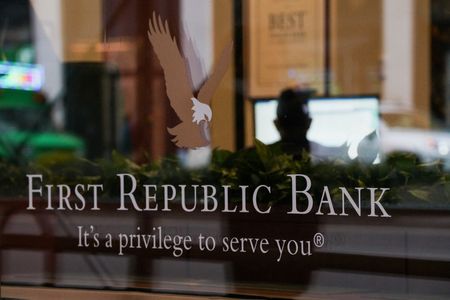This post was originally published on this site

The Federal Deposit Insurance Corp. (FDIC) has been giving the bank time to reach a private deal to rebuild its finances, but as weeks continue to pass without a deal, senior officials are increasingly weighing whether to downgrade their scoring of the firm’s condition including its Camel rating. If this rating is downgraded, it would limit the bank’s access to the Fed’s discount window and an emergency facility, which was launched last month.
The regulators favor a private rescue that doesn’t involve the U.S. seizing the bank and taking a multibillion-dollar hit to the FDIC’s insurance fund. Banks want to avoid anything that damages their own finances and have been waiting for the government to offer aid, such as the FDIC taking control of the firm’s least desirable assets – something that can only happen under the law if First Republic fails and is put into receivership.
Investors are concerned over the bank’s health, with the company reporting disappointing Q1 results on Monday, with deposits falling significantly worse than analysts had estimated.
Nonetheless, the bank reassured investors that it has $45.1 billion in unused available borrowing capacity and cash on hand as of last week, double the level of uninsured deposits, excluding the $30B infusion of deposits from the largest U.S. banks last month. In addition, the company said that withdrawals had slowed in recent weeks.
Shares plunged nearly 50% on Tuesday and are trading more than 40% lower intra-day today.
Bidders have also learned that they can get a better deal on First Republic Bank by waiting until the weakened lender fails, then buying their assets at lower prices. The firms that bought SVB and Signature Bank after they collapsed last month saw their stock prices rise after the deals were announced. Nonetheless, if the bank ultimately fails, executives at many of the nation’s largest banks are concerned they’ll lose some of the fresh deposits their firms contributed to prop up the company just weeks ago.

